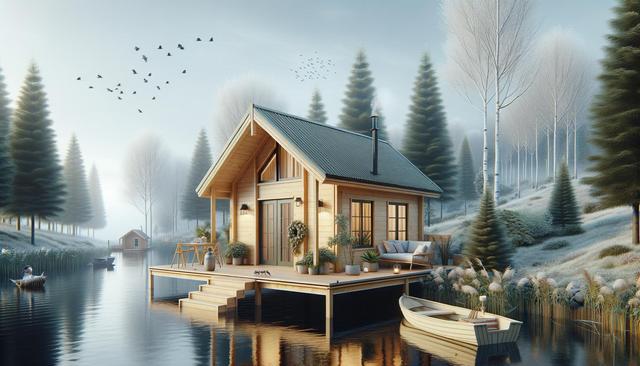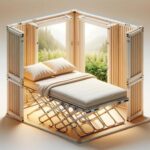What Are Modular Cabins and Why Are They Gaining Popularity?
Modular cabins are prefabricated structures built in sections, or modules, which are then transported to a site and assembled. This construction method allows for efficient production, reduced on-site labor, and greater design flexibility. In recent years, these cabins have gained considerable attention due to their versatility and the high standards of quality that many manufacturers now offer. Whether you need a compact office, a vacation retreat, or an additional living space, modular cabins provide a practical and aesthetically pleasing solution for a wide range of needs.
The appeal of modular cabins lies in their adaptability. They can be customized to suit various climates, terrains, and usage requirements. Additionally, they come in a range of sizes and layouts, allowing buyers to choose a configuration that fits their specific needs. Some of the most common uses for modular cabins include:
- Guest houses or in-law suites
- Temporary or permanent office spaces
- Vacation cabins
- Retail or pop-up shops
- Remote workstations or studios
This adaptability makes modular cabins an attractive option for individuals and businesses looking for high-quality spaces with minimal disruption to daily activities during setup.
Quality Materials and Construction Standards
One of the defining features of high quality modular cabins is the level of craftsmanship and materials used in their construction. Leading manufacturers prioritize durable materials such as treated timber, insulated panels, and weather-resistant siding to ensure the cabins can withstand diverse environmental conditions. These materials not only enhance longevity but also contribute to energy efficiency and low maintenance over time.
In terms of construction standards, modular cabins are typically built in controlled environments, which reduces the risk of delays and inconsistencies caused by weather or labor shortages. This controlled setting also allows for more stringent quality control processes. Advantages of this method include:
- Consistent build quality across all units
- Less waste generated during production
- Faster lead times compared to traditional construction
- Improved worker safety
These factors combine to create a product that delivers lasting value, making modular cabins a smart investment for a variety of applications.
Customization Options and Design Flexibility
Another reason modular cabins are widely appealing is the extensive customization options available. Buyers can select from a range of interior finishes, exterior styles, and layout configurations. Whether you prefer a rustic aesthetic or a sleek, modern design, modular cabins can be tailored to match your personal taste or brand identity.
Customization goes beyond simple aesthetics. Many modular cabin providers offer structural upgrades and layout adjustments to cater to specific functional needs. This includes:
- Additional rooms or partitioned spaces
- Upgraded insulation and HVAC systems
- Enhanced plumbing and electrical setups
- Decks, awnings, and porch extensions
Such flexibility ensures that each cabin is not only visually appealing but also highly functional for its intended purpose. Whether used as a weekend getaway or a full-time workspace, modular cabins can be equipped with the features that matter most to you.
Cost Efficiency and Long-Term Value
While the initial investment in a high quality modular cabin may be comparable to traditional construction, the long-term value often exceeds expectations. Lower maintenance costs, better energy efficiency, and quicker construction timelines contribute to overall savings. Additionally, because modular cabins are built to precise standards, they tend to have fewer structural issues over time.
Modular cabins also offer cost efficiency in terms of scalability. If your needs change, you can often add additional modules without having to demolish or heavily modify the existing structure. This makes them particularly useful for businesses or growing families who anticipate future space requirements.
From a financial perspective, the key benefits include:
- Reduced labor and construction costs
- Lower utility bills due to energy-efficient design
- Minimal ongoing maintenance
- Potential for higher resale value due to build quality
These elements make modular cabins not only a practical choice but also a financially sound one for both short-term and long-term use cases.
Eco-Friendliness and Sustainability
As sustainability becomes a central concern in modern construction, modular cabins stand out for their environmentally conscious design and production methods. The controlled factory environment allows for optimized use of materials, significantly reducing waste. Many modular cabin builders also incorporate eco-friendly materials and technologies, such as low-VOC finishes, recycled materials, and solar panel compatibility.
Moreover, the smaller footprint and efficient insulation of modular cabins often result in lower energy consumption compared to traditional buildings. This not only benefits the environment but also translates to cost savings for the owner. Key sustainable features that are often available include:
- Renewable energy integration (e.g., solar setups)
- Rainwater collection systems
- High-efficiency heating and cooling units
- Use of sustainably sourced building materials
Choosing a modular cabin can thus align with both your functional needs and your environmental values, offering a responsible and modern approach to building.








